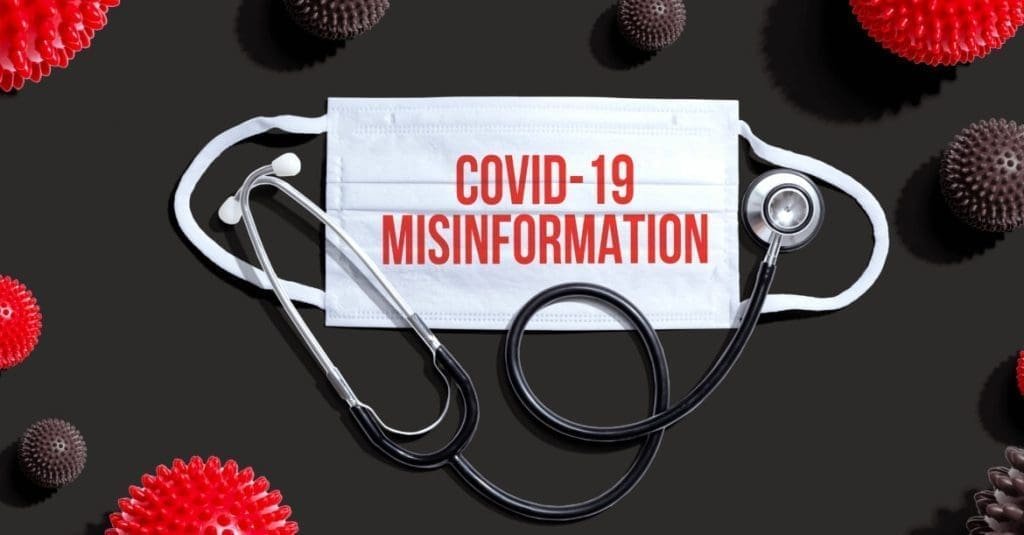Luisa Cunha
In today’s age, we are surrounded by information from online sources. We may read the news on Facebook, receive a message about an interesting scientific article on WhatsApp, or read about the latest health trends on a news website. When we adopt those behaviours, we also need to be careful with the content of what we read online. Although some may think we are immune to misinformation, many of us will probably encounter false information online and potentially share it – as a result, we may unknowingly cause harm.
The COVID-19 pandemic has been a prime topic of misinformation, conspiracy theories, and fake news. Data from the “Canadian Perspectives Survey Series (CPSS) 4” conducted in July 2020 among Canadians aged 15 and over show that 96% of internet users reported seeing potentially false, incorrect, or misguiding COVID-19 information. Moreover, 40% of individuals thought COVID-19-related information was accurate, only to realize it was false later. 53% of individuals shared COVID-19 information from online sources without checking its accuracy[1]. As the survey shows, most of us in Canada have encountered false information online, and many of us believed and shared it. This behaviour can be harmful and cause confusion and fear regarding COVID-19.
Misinformation can also cause harm in other aspects of our lives. When people use unreliable sources to make decisions, it may lead to pitfalls such as investing money in a scam company, using ineffective health products to cure illnesses, or adopting risky behaviour – as many of us rely on the internet to guide health habits, financial choices or issues facing our community. Some harms can also extend to our society – misinformation can lead people to mistrust government authorities, cause economic losses to companies and influence public policies[2].
A more extreme version of misinformation is the infamous fake news. Fake news or disinformation refers to information shared to deceive people. Disinformation has some common warning signs, such as inciting an emotional reaction, having a strong position on a controversial topic, making an extraordinary statement, sounding “too good to be true,” or having click baits (“You won’t believe this video!). If a piece of information has those warning signs, it doesn’t mean they are false, but it’s recommended that you fact-check it [2].
If you need help identifying reliable sources, you can follow those four steps and avoid believing and spreading misinformation online [2][3].
1. Check information with different sources: If you read a news story and are unsure it’s accurate, comparing it with significant news vehicles is an excellent way to verify it. Ensure other reputable news media also report the issue – if that is the case, the information is more likely to be truthful.
2. Examine an article’s sources: Online news articles are based on direct sources. If you have doubts about the information you read online, you can investigate the source to see if it matches the news article.
3. Verify the website’s name: Misleading websites may have a domain name close to a reputable news source. You may find slight differences in letters or misspells. Find out the owner of a website domain at https://www.cira.ca/ca-domains/whois (.ca websites) or https://www.whois.com/whois/ (.com websites)
4. Use fact-checking websites: Reputable fact-checking websites can help you discern fake news from credible information, such as Media Smarts, ATP Fact-check, Snopes
A good rule of thumb is to pause before you share [3]. Ensure you check the sources, accuracy, and validity of information and stop the spread of another “virus” – misinformation.
References:
[1] Garneau, K., & Zoussou, C. (2021). Misinformation during the COVID-19 pandemic. https://www150.statcan.gc.ca/n1/en/pub/45-28-0001/2021001/article/00003-eng.pdf?st=zwXiFEwe
[2] Government of Canada, S. C. (2023, February 7). Online disinformation. https://www.canada.ca/en/campaign/online-disinformation.html [3] Canadian Centre for Cyber Security (2018, October 22). Fact or fiction: Quick tips to help identify “fake news.” Canadian Centre for Cyber Security. https://cyber.gc.ca/en/guidance/fact-or-fiction-quick-tips-help-identify-fake-news






